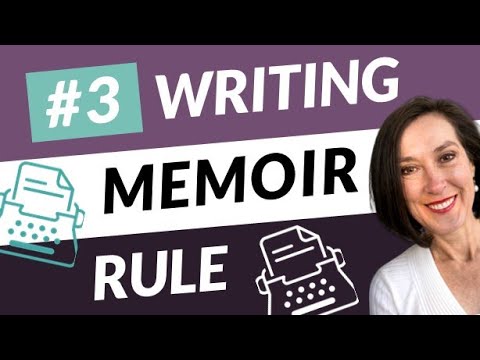Writing a short memoir is not just a creative exercise — it’s an opportunity to immortalize your most treasured experiences and share them in a captivating and sometimes hilarious way. Whether you’re jotting down your childhood mishaps, career journeys, or family escapades, there’s an art to crafting a memoir that is concise, emotional, and irresistibly entertaining.
In this guide, we will show you exactly how to write a compelling short memoir infused with humor and personality. You’ll also discover how to smartly use trending funny book memes to keep your tone light and relatable, and how to plan your word count per page effectively to deliver a story that’s both readable and impactful.
What is a Short Memoir?
A short memoir is typically a focused narrative recounting a personal experience, usually written under 5,000 words. It isn’t a full autobiography but rather a slice of life — a vivid snapshot that can leave readers laughing, crying, or deep in thought.
Start with a Bang: Crafting the Perfect Hook
The opening of your short memoir must be bold and magnetic. Whether it’s a hilarious one-liner, a shocking confession, or a poignant reflection, your first sentence should instantly pull readers in.
Examples:
-
“I once got fired for telling my boss the truth — that his dog looked smarter than him.”
-
“The day my grandma set the toaster on fire while blessing it was the day I realized I wasn’t adopted.”
Such lines blend humor with intrigue, compelling readers to continue.
Choose a Single, Impactful Theme
A common mistake in short memoirs is trying to include too many themes or life lessons. Instead, narrow your focus. Ask yourself:
-
What moment changed me?
-
What story keeps getting laughs at family gatherings?
-
What truth have I never told out loud?
Pick one clear moment and build your memoir around it.
Structure It Like a Novel
Your memoir may be nonfiction, but it should still follow the classic narrative arc:
-
Introduction – Set the scene, introduce key players.
-
Conflict – The twist, struggle, or pivotal moment.
-
Climax – The most intense or hilarious point.
-
Resolution – Reflection, transformation, or takeaway.
Keep your pacing tight, and let each section drive the story forward.
Add Humor with Funny Book Memes Style Writing
Injecting humor is key, especially if you want your memoir to have that “laugh-out-loud” charm readers adore. Funny book memes — those snappy, relatable quotes that go viral — can inspire your tone.
Example styles:
-
“I write because punching people is frowned upon.”
-
“My childhood was like a sitcom, but with fewer cameras and more trauma.”
Use clever comparisons, ironic observations, and self-deprecating wit to make your stories stand out.
Use Vivid, Sensory Language
Your readers weren’t there — your job is to make them feel like they were. Describe smells, sounds, tastes, and emotions. Replace vague sentences with sensory-packed, evocative prose.
Weak: I had a bad day.
Strong: By noon, I had coffee on my shirt, a bird poop crown, and a boss who yelled so loudly, my ancestors flinched.
Dialogue Adds Life
Dialogue isn’t just for novels — it’s a memoir’s best friend. It breaks up dense paragraphs and adds realism and humor.
Instead of saying:
“My mom was mad at me.”
Try:
“You left the stove on again?” Mom screamed. “What are you trying to cook, the entire neighborhood?”
This kind of writing paints a picture and immerses readers in your world.
Stick to a Word Count That Works
For a short memoir that’s digestible yet impactful, aim for around 1,000 to 2,500 words. This typically translates to 2-5 pages, depending on formatting and font size.
How many words per page? It depends:
-
Single-spaced, 12pt font: ~500–550 words per page
-
Double-spaced: ~250–300 words per page
Keep your audience in mind. Busy readers love shorter stories packed with punch. Don’t pad — every sentence must earn its place.
End with Emotional Resonance
Wrap up your memoir with a line that sticks with readers — something thought-provoking, funny, or deeply personal.
Examples:
-
“In the end, I didn’t find closure — I found cheesecake. And honestly, that was better.”
-
“If life is a mess, then at least I can say mine was colorful.”
A great closing line can turn a good memoir into an unforgettable one.
Edit Without Mercy
Once your first draft is complete, it’s time to slash the fluff. Ask:
-
Does every sentence serve the theme?
-
Are there clichés I can replace with originality?
-
Can I tighten long-winded paragraphs?
Use tools like Grammarly or Hemingway Editor to polish your grammar and tone.
Bonus Tips for Going Viral with Your Memoir
-
Add images that match your story tone (funny family photos, doodles, scanned diary entries).
-
Share excerpts as memes on social media platforms like Instagram and Pinterest.
-
Use popular hashtags such as #memoirwriter #bookhumor #funnybookmemes to reach wider audiences.
-
Consider turning it into a podcast episode or YouTube storytime if your delivery is engaging.
Conclusion
Writing a short memoir doesn’t require a degree in literature or a decade of experience. It requires honesty, heart, and humor. By focusing on one story, using vivid language, and channeling the tone of funny book memes, you can create a piece that entertains and resonates with readers around the globe.
Keep it short. Keep it sharp. And above all — keep it real.






